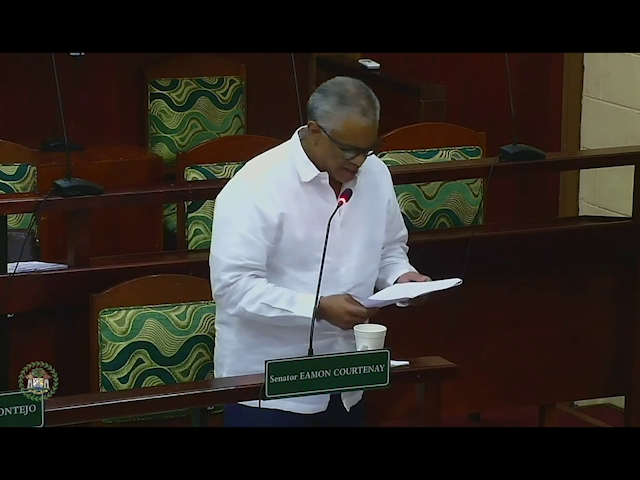Bill to Expunge Specified Convictions from Criminal Records
The Briceño Administration continues to make efforts to reform Belize’s criminal justice system. On Tuesday, Eamon Courtenay, the Lead Senator for Government Business, introduced three legislative reforms to the Senate. These bills are intended to expunge certain convictions from an individual’s criminal records so long as they have served their time. It also aims to provide a mechanism for alternative sentencing for individuals who are convicted of crimes that are not of a serious nature. Senator Courtenay explained further.
Eamon Courtenay, Lead Senator, Government Business
“The idea is to recognize that the people who have been rehabilitated, people who have paid their debt to society should be allowed to be reincorporated into society and the criminal record against them be expunged. Having a criminal record as you know affects many people applying for jobs, visas and other services when an application form requires you to say, have you been found guilty of a criminal offense. The purpose here is to in the limited number of offenses listed in the act, is to expunge those convictions in the circumstance established in the act by the board that will be established by the act. The purpose is to allow those persons who have served their time and have been rehabilitated to have their record expunged, therefore the stigma of their conviction would be removed. There is a provision that precludes that a person’s conviction after their record has been expunged. The second piece of legislation is the alternative sentencing bill. This bill is designed to repeal the existing legislation. What the judiciary reported was that between 2016 and 2022 over sixty percent of the five thousand three hundred and eighty-eight persons serving custodial sentences were convicted and imprisoned for immigration offenses and other nonviolent and serious offense such as nonpayment of debts, fines and maintenance orders. The prison is filled with people who have not committed serious offenses. Important offense, yes violations of law, but the judiciary has no tool to provide alternatives modes of sentencing.”






Facebook Comments